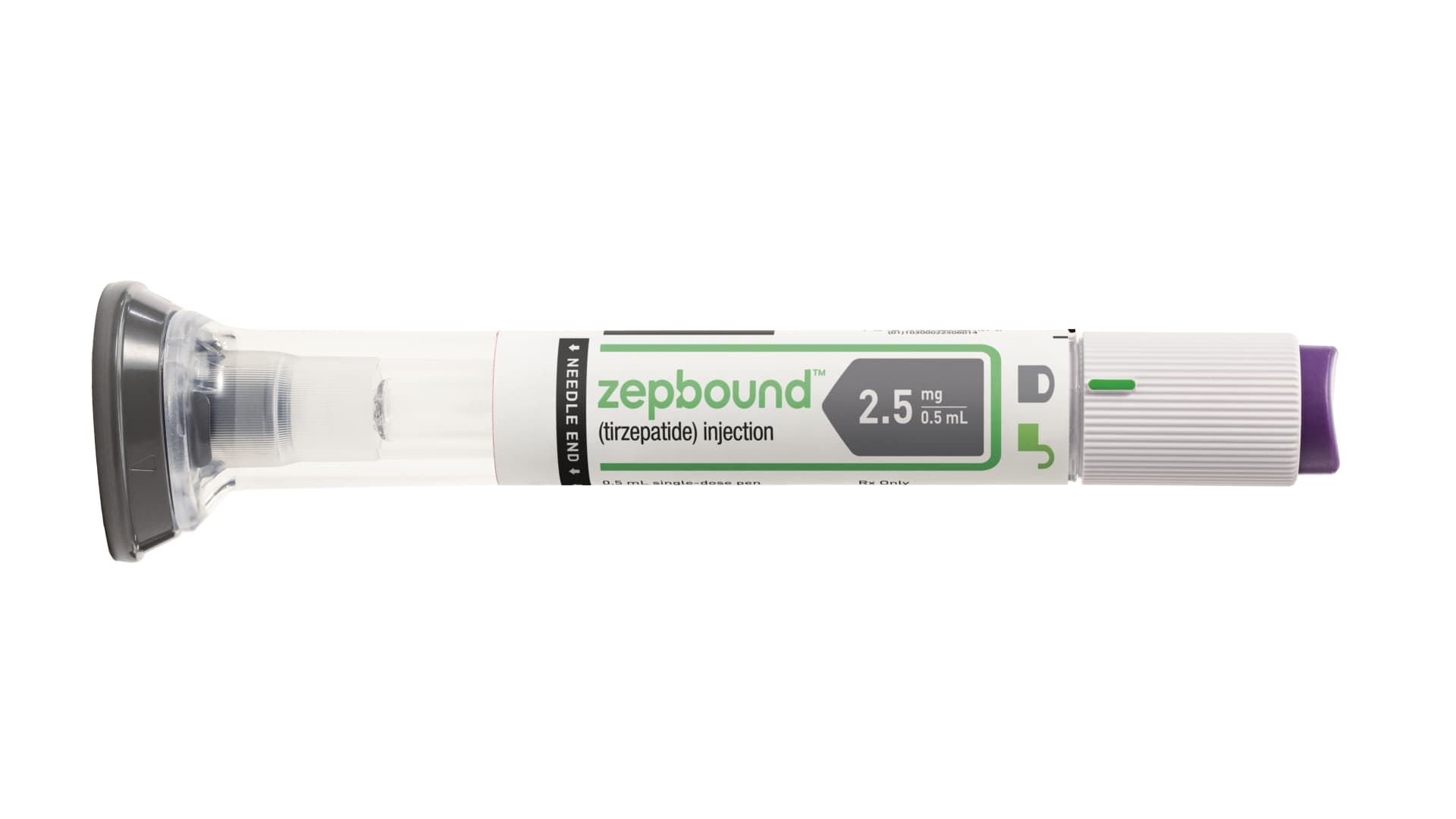
Eli Lilly’s drug tirzepatide was approved for weight loss by the FDA.
Courtesy of Eli Lilly
Patients who took Eli Lilly‘s weight loss drug Zepbound regained around half the weight they shed after stopping the newly approved treatment for a year, according to data released Monday.
The data, which represents the full results from an 88-week study funded by Eli Lilly, suggests that people have to stay on the weekly injection if they want to maintain significant weight loss.
Shares of Eli Lilly fell more than 3% Monday after the data was published in the research journal JAMA. The pharmaceutical giant released initial results from the same study, which was conducted by some Eli Lilly employees and some outside researchers, in July.
Zepbound, Novo Nordisk‘s weight loss injection Wegovy and their blockbuster diabetes counterparts have soared in popularity, and in turn have run in short supply in the U.S. over the past year because they help patients lose substantial weight without surgery. Some Wall Street analysts believe Zepbound, which uses the same active ingredient as Eli Lilly’s diabetes drug Mounjaro, could become the best-selling drug of all time.
People who discontinue Wegovy and Novo Nordisk’s diabetes medication Ozempic have also regained weight, raising concerns among U.S. health insurers about the high costs involved with long-term coverage of the pricey drugs.
The study on Eli Lilly’s treatment showed that 670 obese patients without diabetes lost around 20% of their body weight on average after taking Zepbound for 36 weeks. Half of those patients then continued the drug for another 52 weeks, while the other half switched to a placebo for the next year.
Patients who continued Zepbound lost an additional 6.7% of their weight on average from weeks 36 to 88, while those who stopped taking the drug regained 14.8% of their weight.
Still, those who discontinued Zepbound still ended the 88-week study with 9.9% less weight than they started with, indicating that they only regained about half the weight they initially lost.
“If you look at the magnitude of the weight gain, they gain back about half the weight they had originally lost over a one-year period of time,” lead study author Dr. Louis Aronne, an obesity medicine specialist and professor of metabolic research at Weill Cornell Medicine in New York City, said in an interview with CNN.
About 17% of those who stopped Zepbound maintained at least 80% of their original weight loss, the study said. Meanwhile, 9 in 10 of the people who continued Zepbound were able to maintain at least 80% of the weight they lost.
Throughout the full 88-week study, health-care professionals encouraged all patients to cut about 500 calories per day from their diet and exercise at least 150 minutes a week.
“Patients, providers and the public do not always understand obesity is a chronic disease that often requires ongoing treatment, which can mean that treatment is stopped once weight goals are met,” said Dr. Jeff Emmick, senior vice president of product development at Eli Lilly, in a statement.
But Emmick said Monday’s study shows that “continued therapy can help people living with obesity maintain their weight loss.”
Don’t miss these stories from CNBC PRO:







